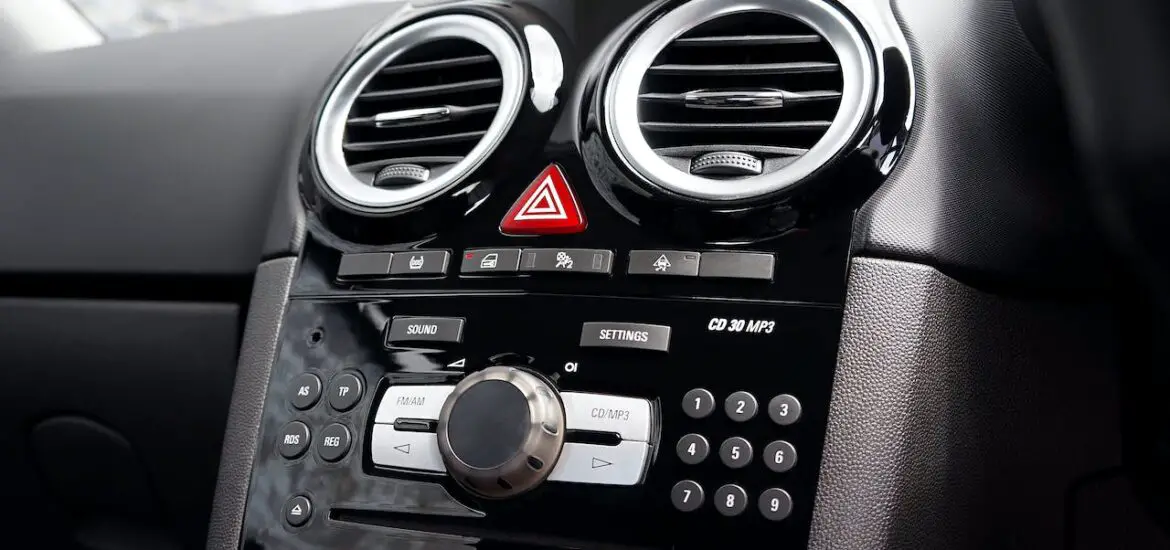“I smell freon in my car.” If this is your situation, then this article will guide you on how to identify and fix the leak.

Table of Contents
Can Freon Leak Through Car Vents?
Freon leaks through car vents can occur and are a common sign of a problem with your car’s air conditioning (AC) system. The AC system consists of several components, including the evaporator, compressor, condenser, and expansion valve. The evaporator, located inside the dashboard, is the most likely place for a leak that leads to the smell of freon in the cabin.
Over time, this component can suffer wear and tear, develop cracks or holes, and lead to freon leaking into the air system. When the AC is on, this freon is pushed through the vents, carrying its distinct chemical smell into the car.
Step-by-Step Guide to Identify a Freon Leak
Identifying a freon leak in your car is crucial for maintaining the efficiency and safety of your AC system. Here’s a detailed guide to help you detect a leak:
Visual Inspection: Begin by inspecting all the accessible parts of your AC system. Look for any signs of wear, damage, or oily residue on AC components like hoses, pipes, and the compressor. Oily spots may indicate where the freon is leaking.
Check the AC Performance: Turn on your car’s AC and check for any decrease in cooling efficiency. A less effective AC often signifies a low freon level, hinting at a possible leak.
Using Leak Detection Kits: Leak detection kits are an effective way to pinpoint a leak. These kits typically come with a UV dye that you add to the AC system. After running the AC, you use a UV light to look for the dye’s glow, which will indicate the location of the leak.
A good example is the Paddsun UV Fluid Gases Leak Detector Kit available at Walmart.
Listen for Sounds: Turn off any noise in the car and listen closely when the AC is running. A hissing or bubbling sound can indicate a freon leak.
Professional Inspection: If you’re unable to find the leak or are unsure about handling AC components, a professional mechanic can perform a more thorough inspection using advanced tools and techniques.
Fixing a Freon Leak in Your Car
Once a freon leak is identified, it’s essential to fix it to prevent further damage to your AC system and ensure your safety. Here’s how to address a freon leak:
Repair or Replace Damaged Parts: Depending on the severity and location of the leak, you may need to repair or replace the damaged part. Commonly affected parts include the evaporator, hoses, or seals.
Sealing Minor Leaks: For minor leaks, specially designed sealants can be used. However, these are temporary fixes and might not work for all types of leaks.
Recharging the AC System: After fixing the leak, the AC system needs to be vacuumed to remove any moisture and air and then recharged with the correct type and amount of freon. This step requires specific tools and knowledge, so it’s often best left to professionals.
Testing: After the repairs and recharging, test your AC system to ensure it’s working correctly and efficiently.
Preventative Measures to Avoid Future Leaks
To prevent future freon leaks in your car, regular maintenance and careful use of the AC system are key. Follow these preventive measures:
Regular AC Checkups: Have a professional inspect your AC system regularly, at least once a year. They can check for early signs of wear and tear, ensuring timely intervention.
Run Your AC Regularly: Even during colder months, run your AC periodically. This helps keep the system lubricated and reduces the chances of seals drying out and cracking.
Avoid Overuse: Constantly running your AC on maximum can put undue stress on the system. Use it judiciously to prolong its lifespan.
Quality Repairs: If repairs are needed, ensure they are done using high-quality parts and by a qualified mechanic. This reduces the likelihood of future leaks.